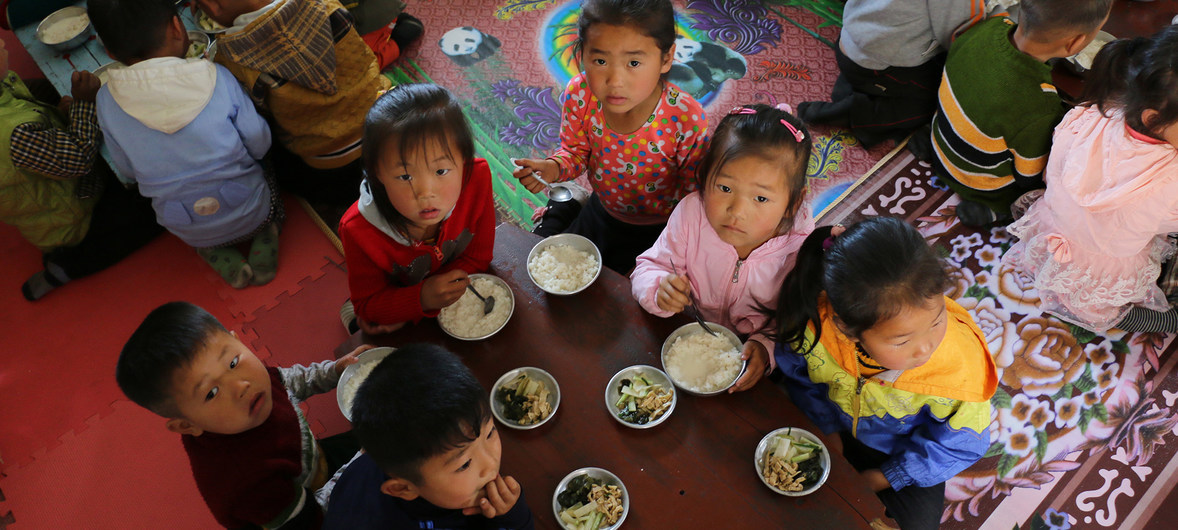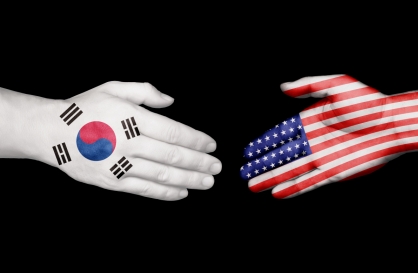South Korea on Wednesday approved a plan to dispatch $8 million in humanitarian aid to North Korea via UN agencies and is considering additional donations of rice to alleviate hunger and illness in the impoverished country.
The South and North Exchange and Cooperation Promotion Council, a decision-making body under the Ministry of Unification that deals with inter-Korean policies, gave the green light to the use of funds from the government budget to support humanitarian programs for North Korea operated by the World Food Program and the United Nations Children’s Fund (UNICEF).
The South and North Exchange and Cooperation Promotion Council, a decision-making body under the Ministry of Unification that deals with inter-Korean policies, gave the green light to the use of funds from the government budget to support humanitarian programs for North Korea operated by the World Food Program and the United Nations Children’s Fund (UNICEF).

This marks the Moon Jae-in administration’s first government-level humanitarian assistance to the North via international organizations. Its initial plan to donate $8 million in 2017, which was already endorsed by the council then, was thwarted at the height of the US’ “maximum pressure” campaign against Pyongyang.
Now that the council has approved the donations, the government plans to wrap up the administrative procedures to carry them out by the week-end.
“It typically takes three to four days to notify an international organization of the government’s decision (to make a donation) and send it money,” Unification Ministry spokesperson Lee Sang-min told reporters during a regular press briefing.
Seoul will provide $4.5 million for a WFP nutrition support initiative to offer nutrient-rich cereal and biscuits to infants and pregnant women at some 60 day care centers, orphanages and children’s hospitals in the North’s nine provinces.
The remaining $3.5 million will be given to UNICEF, which will use it to deliver essential medicines and nutrition supplies as part of a maternal and child health care project.
On May 17, the ministry announced the humanitarian assistance plans in response to a joint report from the WFP and the Food and Agriculture Organization on severe food shortages North Korea faces after the worst harvests in decades, the result of drought and flooding.
About 40 percent of North Korea’s population is in urgent need of food aid, according to the UN assessment.
In addition to the $8 million in humanitarian aid, Seoul is seeking to send rice to Pyongyang through the WFP.
“Regarding the food aid, we are continuing to have detailed discussions with the WFP,” Unification Minister Kim Yeon-chul said Tuesday during a meeting with foreign correspondents in Seoul.
Given that North Korea is most in need of food before the autumn harvest -- between May and September -- Seoul is expected to make a decision on the rice aid plan soon.
Last week, Rep. Seol Hoon of the ruling Democratic Party said the government might provide 50,000 tons of food aid to North Korea through international organizations and that the country needed an additional 1.45 million tons to be able to meet its citizens’ needs. The ministry said nothing has been confirmed yet.
On Tuesday, Lee Dong-ryeol, director of the peace diplomacy planning team within South Korea’s Ministry of Foreign Affairs, met in Seoul with his US counterpart, Alex Wong, deputy assistant secretary of state for East Asia and Pacific affairs, to discuss the timing of the assistance and method of delivery. They may also have discussed the plans to provide rice aid.
During the meeting, Lee also briefed Wong on the latest developments concerning North Korea, including the recent outbreak of African swine fever in the country’s northern region near the border with China.
The South proposed through an inter-Korean liaison office in the North’s border city of Kaesong on May 31 that the two countiries work together to prevent the disease from spreading. The North has yet to respond to the proposal.
“As the inter-Korean communication channel remains open, we continue to ask for the North’s response,” Lee said.
By Park Han-na (hnpark@heraldcorp.com)



![[AtoZ into Korean mind] Humor in Korea: Navigating the line between what's funny and not](http://res.heraldm.com/phpwas/restmb_idxmake.php?idx=644&simg=/content/image/2024/04/22/20240422050642_0.jpg&u=)


![[Herald Interview] Why Toss invited hackers to penetrate its system](http://res.heraldm.com/phpwas/restmb_idxmake.php?idx=644&simg=/content/image/2024/04/22/20240422050569_0.jpg&u=20240422150649)
![[Graphic News] 77% of young Koreans still financially dependent](http://res.heraldm.com/phpwas/restmb_idxmake.php?idx=644&simg=/content/image/2024/04/22/20240422050762_0.gif&u=)








![[Exclusive] Korean military to ban iPhones over security issues](http://res.heraldm.com/phpwas/restmb_idxmake.php?idx=652&simg=/content/image/2024/04/23/20240423050599_0.jpg&u=20240423171347)



![[Today’s K-pop] Ateez confirms US tour details](http://res.heraldm.com/phpwas/restmb_idxmake.php?idx=642&simg=/content/image/2024/04/23/20240423050700_0.jpg&u=)